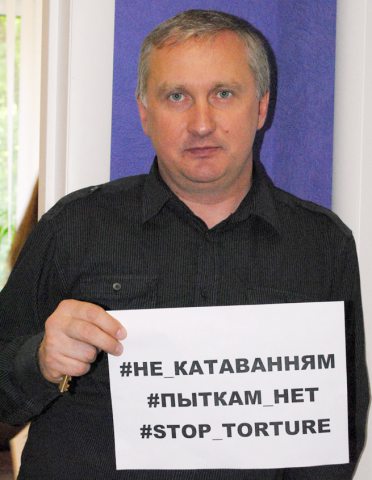Pavel Sapelka: Torture is often a hidden problem in Belarus
In 1997, the UN General Assembly proclaimed 26 June as the International Day in Support of Victims of Torture. On this day, international and national human rights organizations remind once again that “no exceptional circumstances whatsoever, whether a state of war or a threat of war, internal political instability or any other public emergency, may be invoked as a justification of torture.”
As yet, torture continues to be used, as indicated by reports from the victims of torture and their families. In 2014, Amnesty International launched a campaign entitled Stop Torture “to expose a global crisis on torture by governments and achieve greater protection from torture and other ill-treatment.”
“While many countries have made significant strides in combating torture in the last year, some governments around the world are still using torture to extract information, force confessions, silence dissent or simply as a cruel form of punishment. 157 countries have ratified the United Nations Convention against Torture. 141 countries have been reported on by Amnesty in relation to torture in the past five years. In some countries it’s a rarity, in others it’s widespread. Even one case is unacceptable,” says Amnesty International’s website.
Belarus is among the countries where torture is still used. Pavel Sapelka, lawyer of the Human Rights Center “Viasna” stresses the relevance of the problem of torture in Belarus:
“Torture is a problem that should never be forgotten. This is often a hidden problem, because the administration of prisons and those who can in one way or another use torture and cruel and inhuman treatment work like mad to silence these facts.”


















